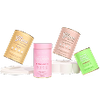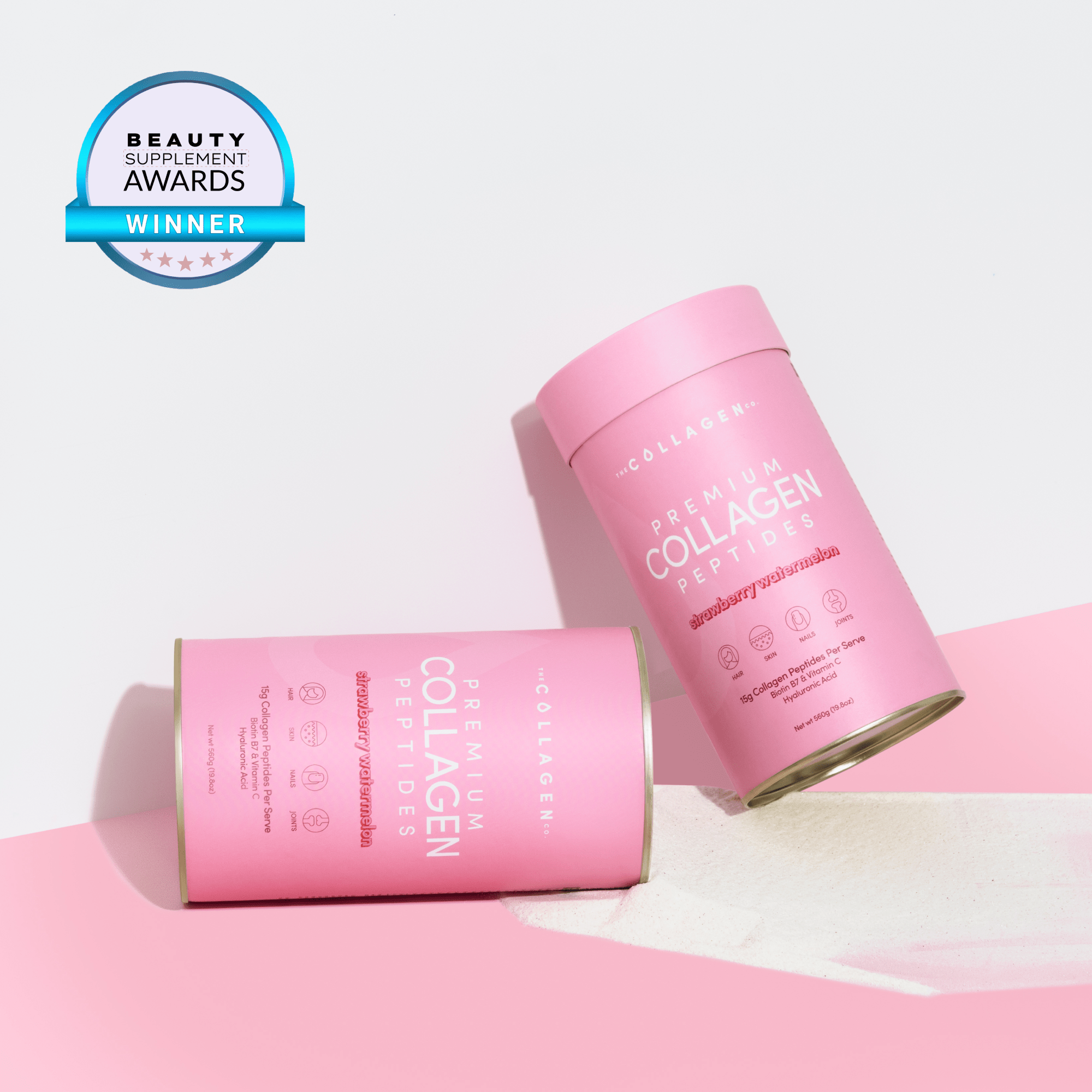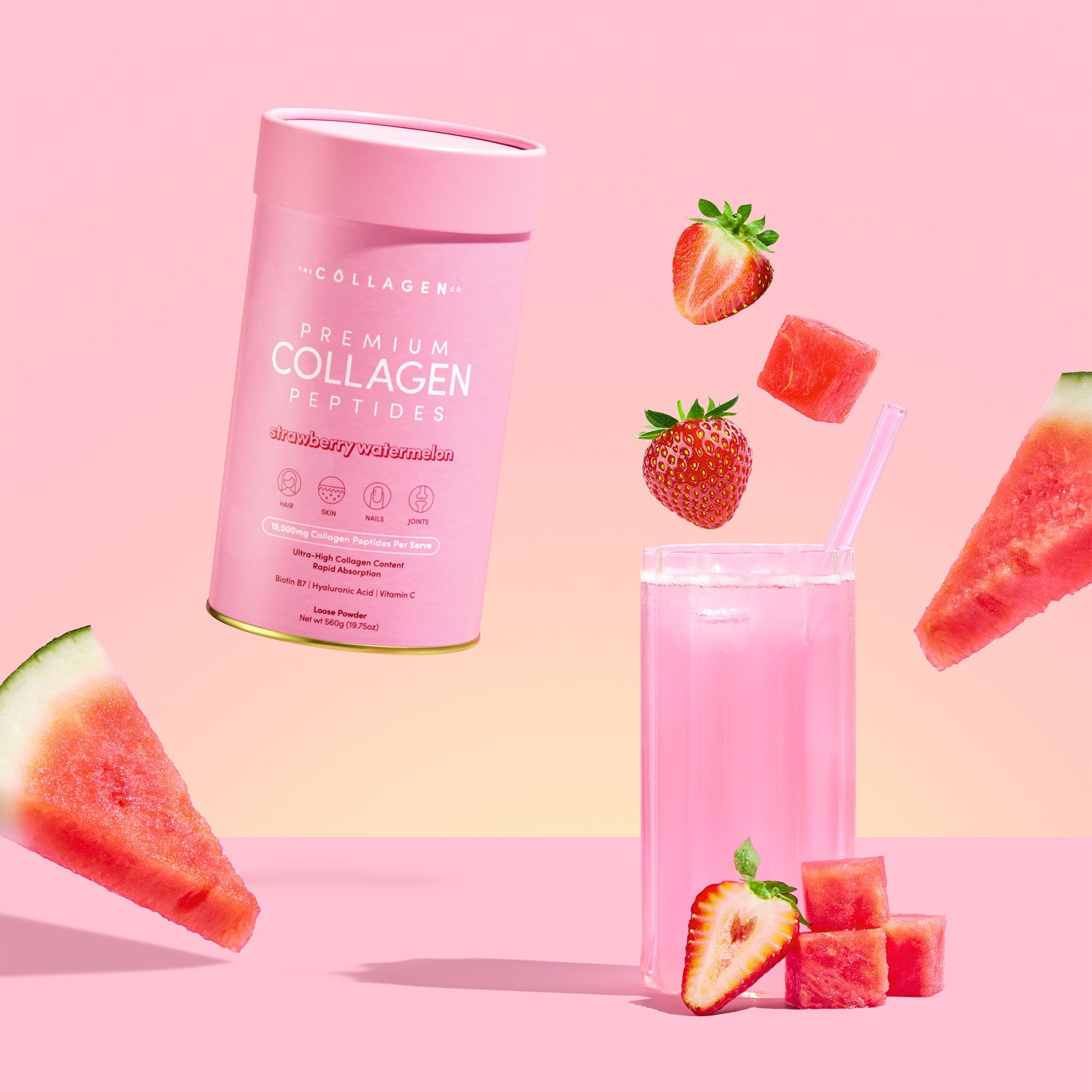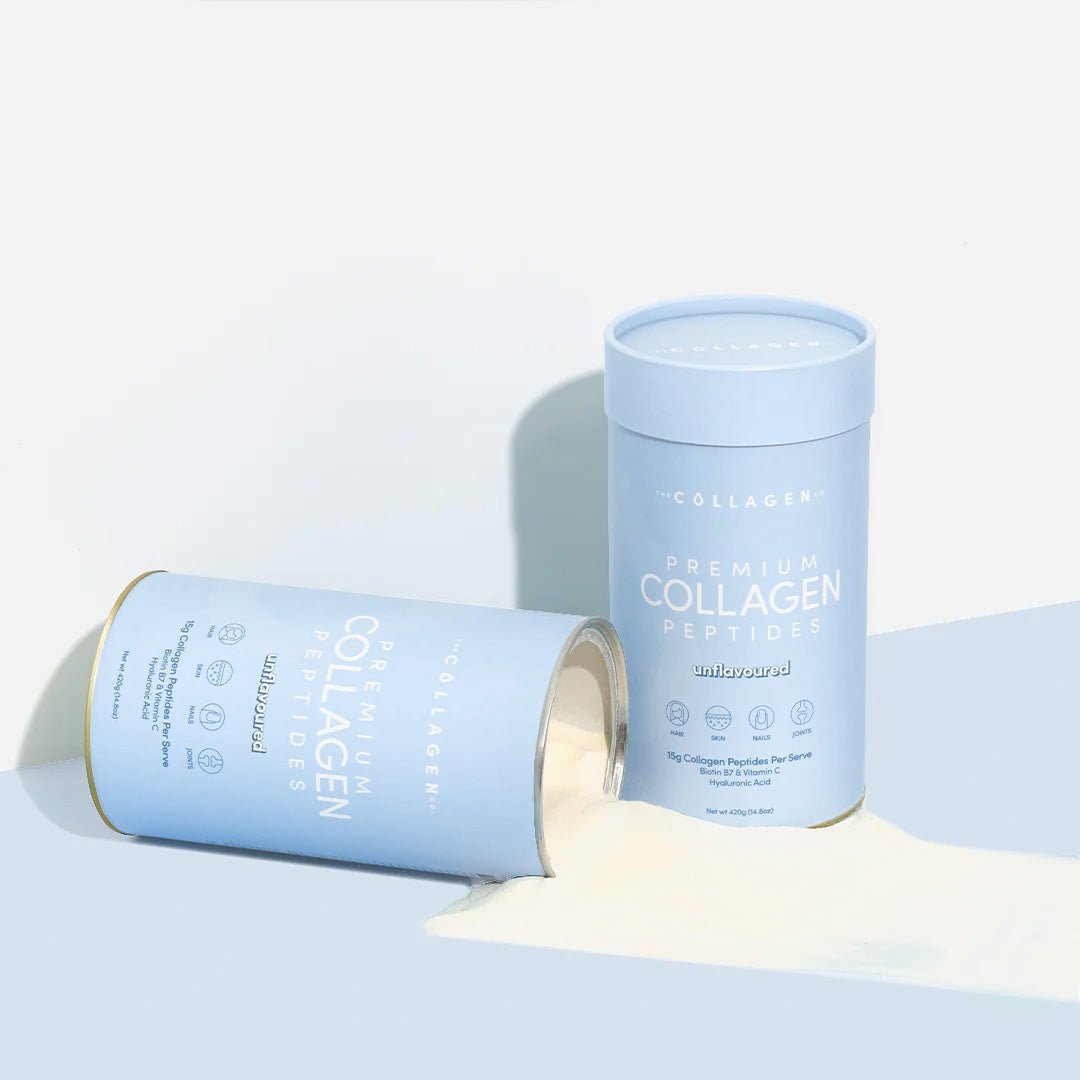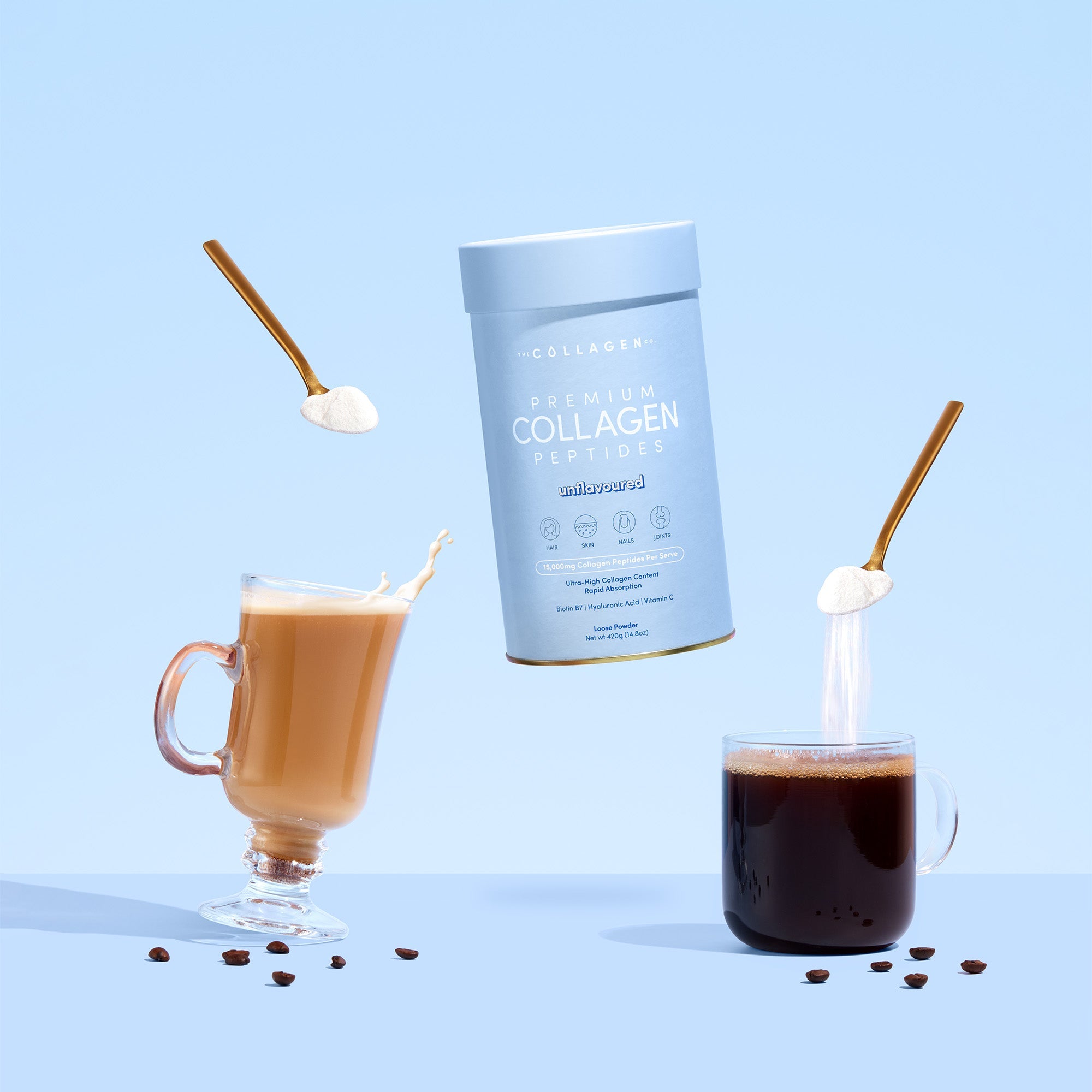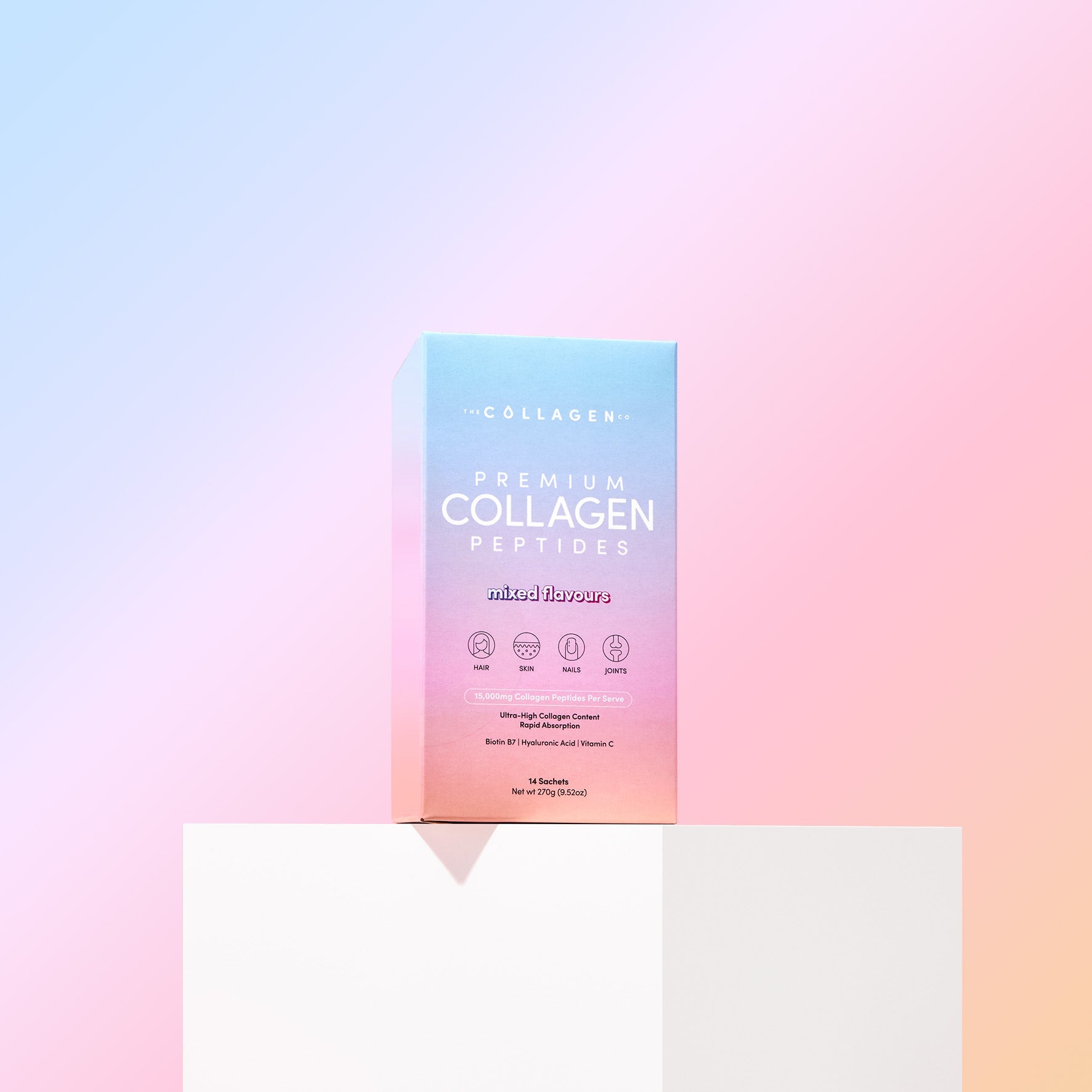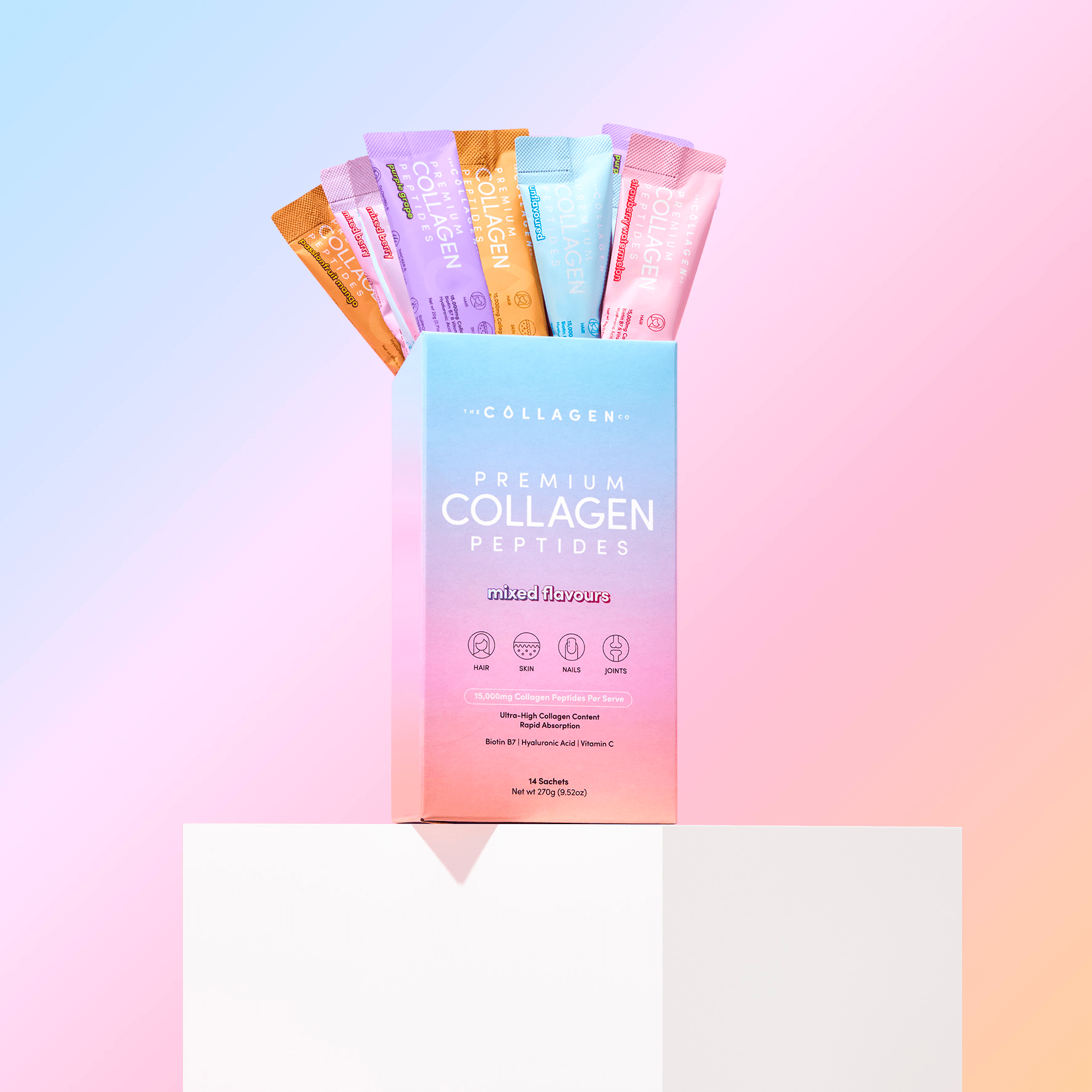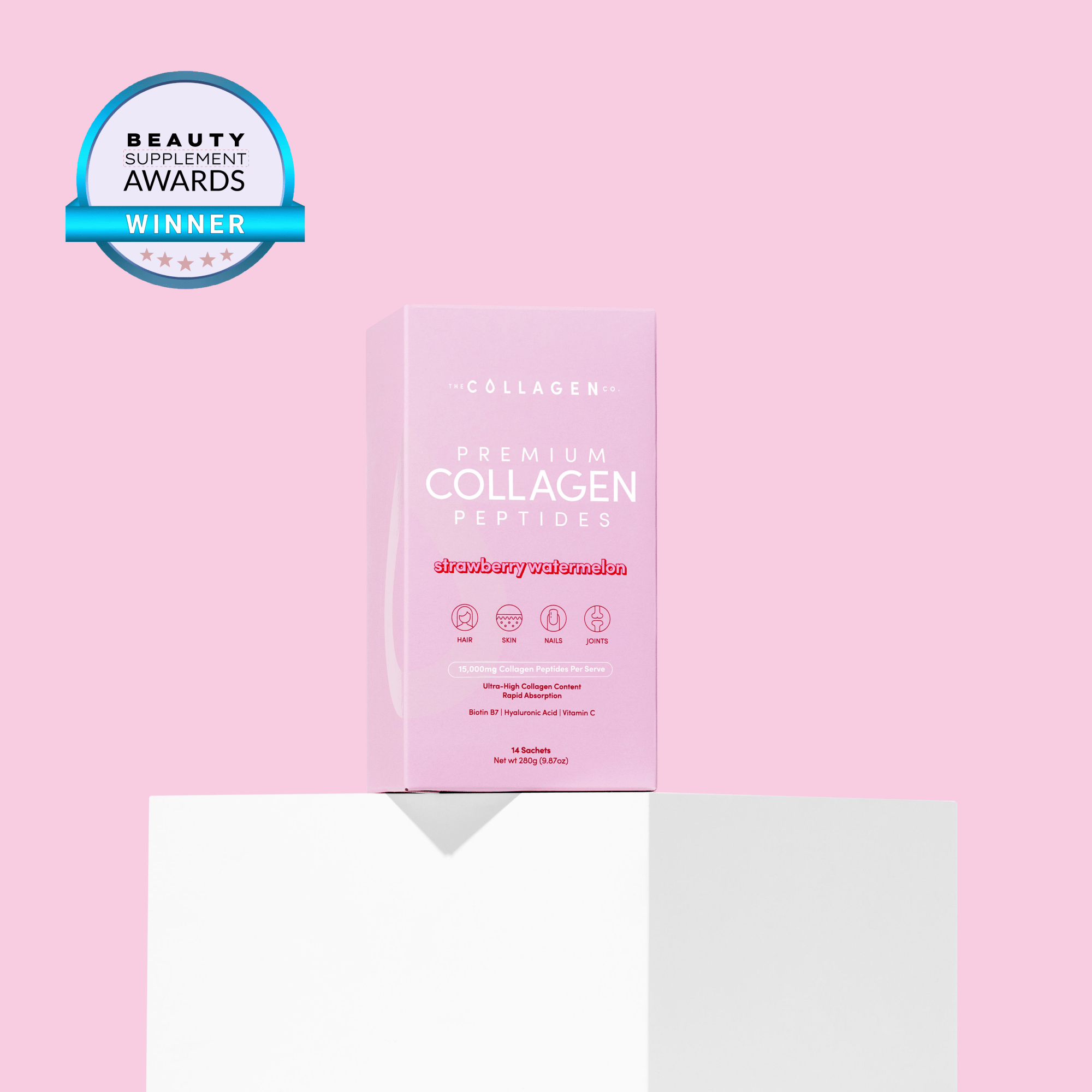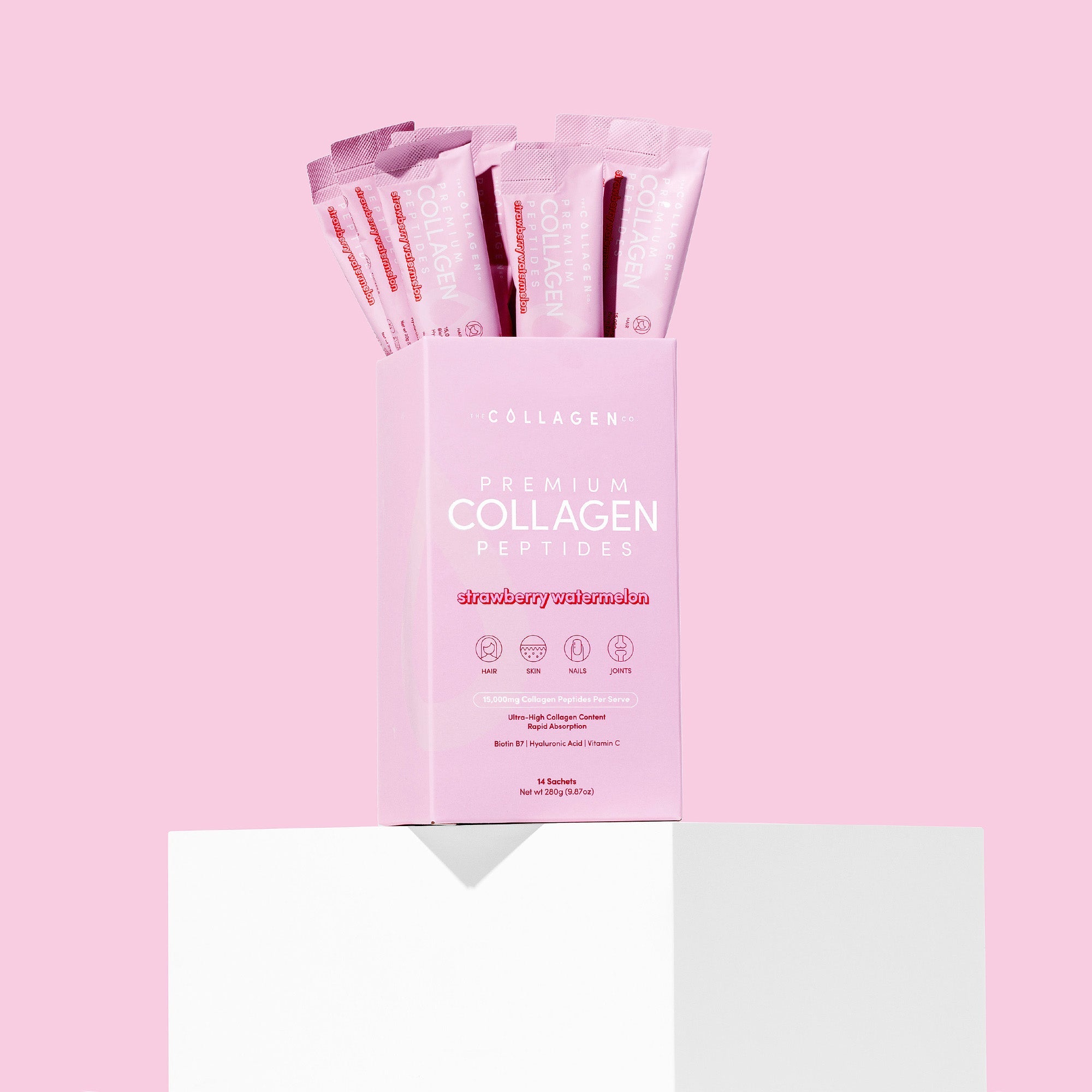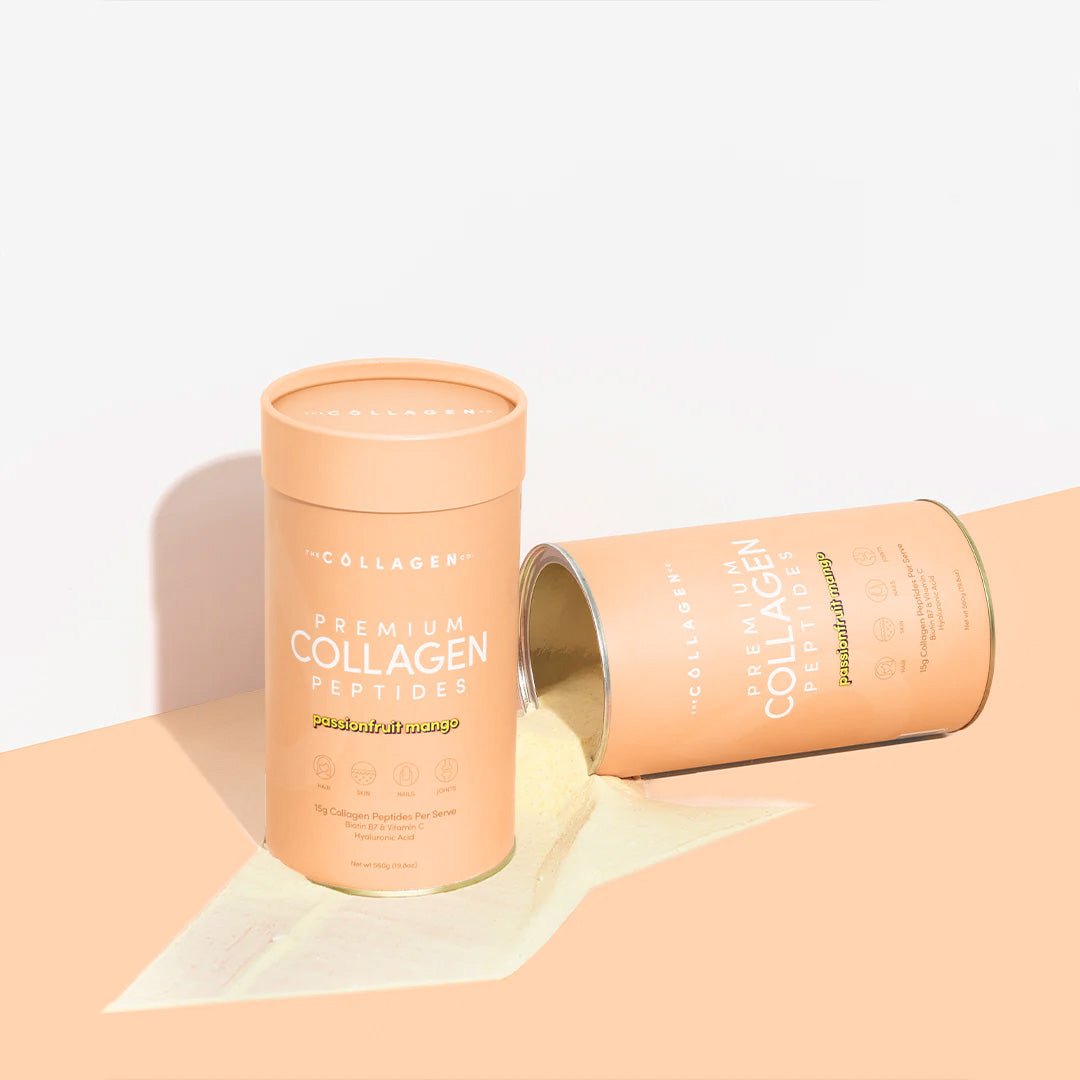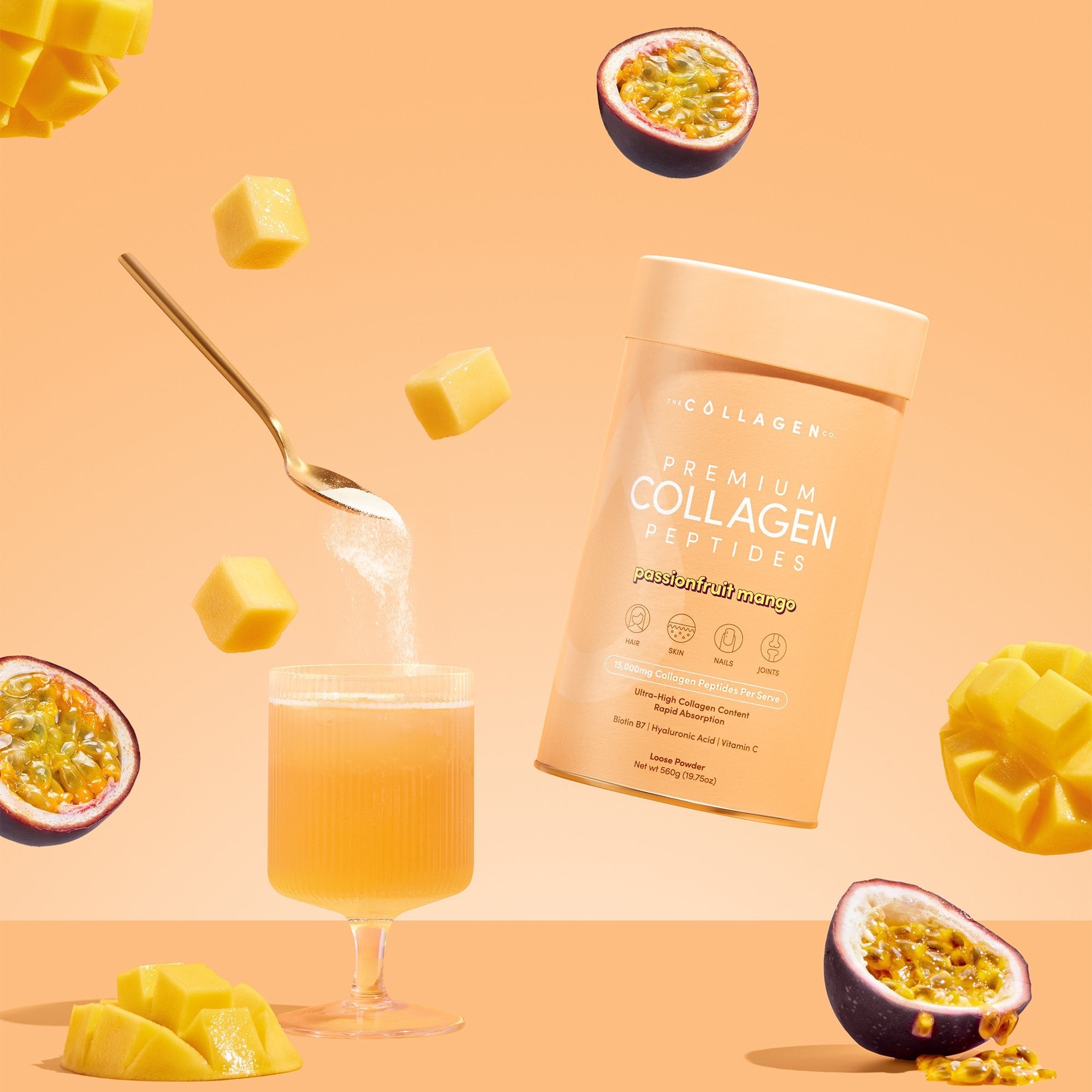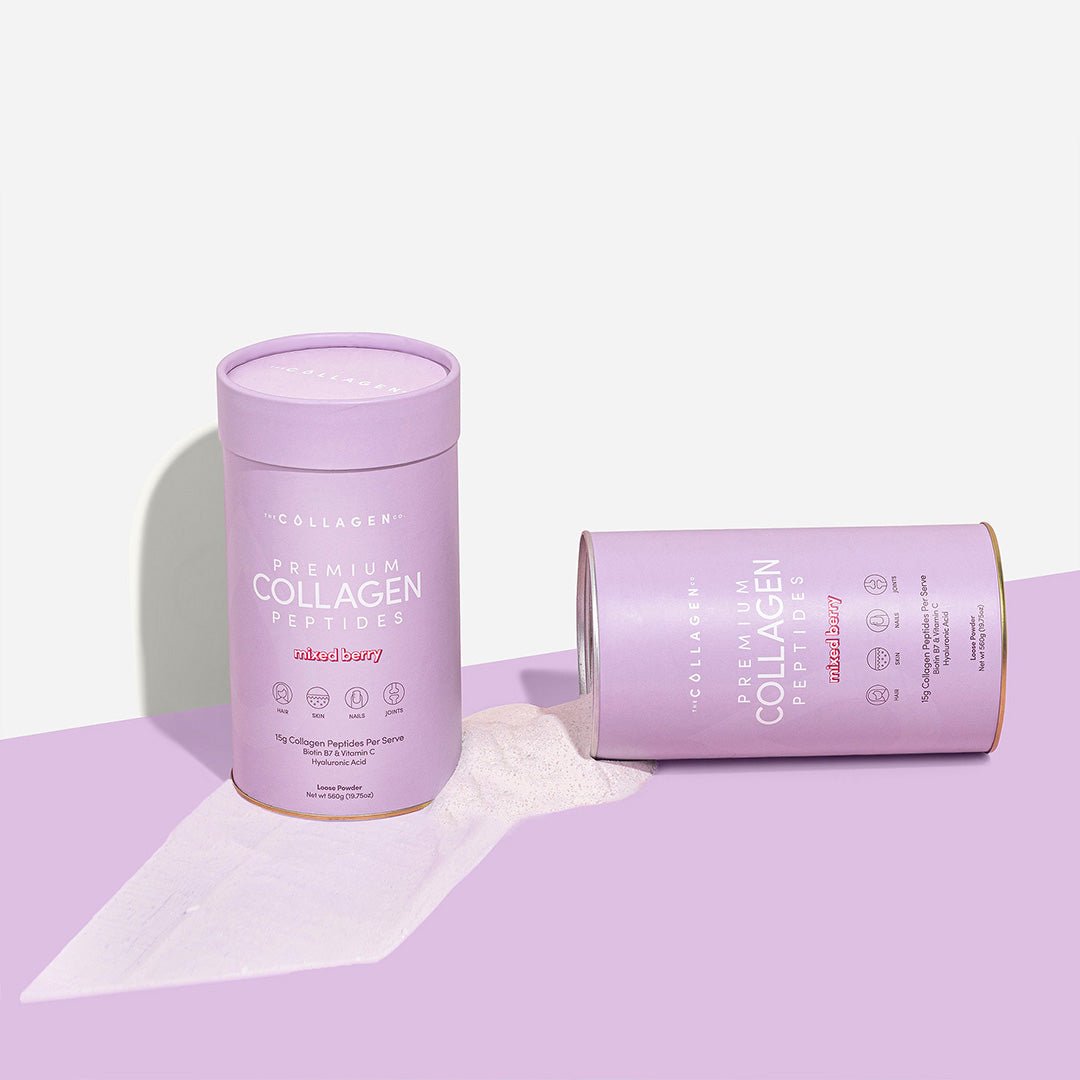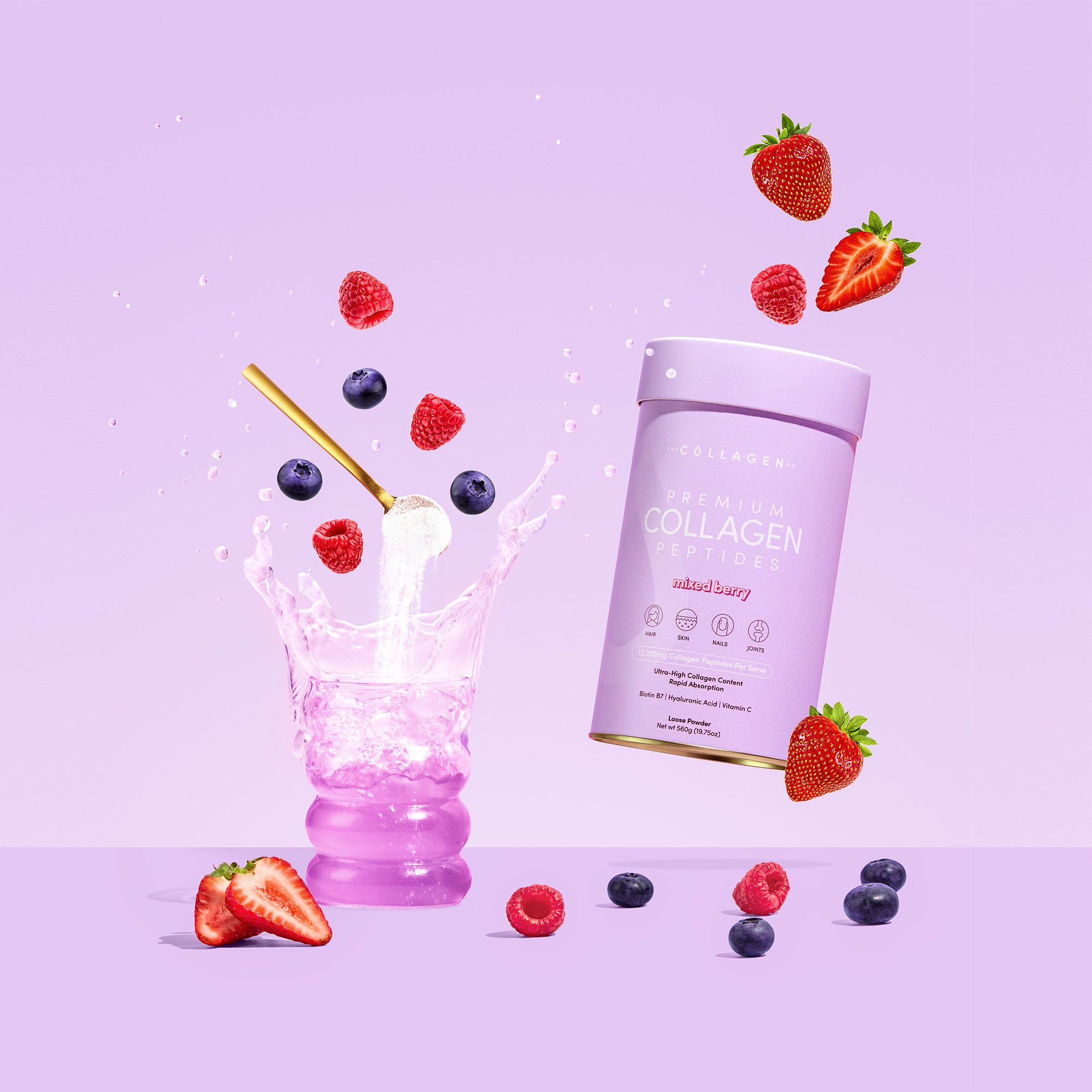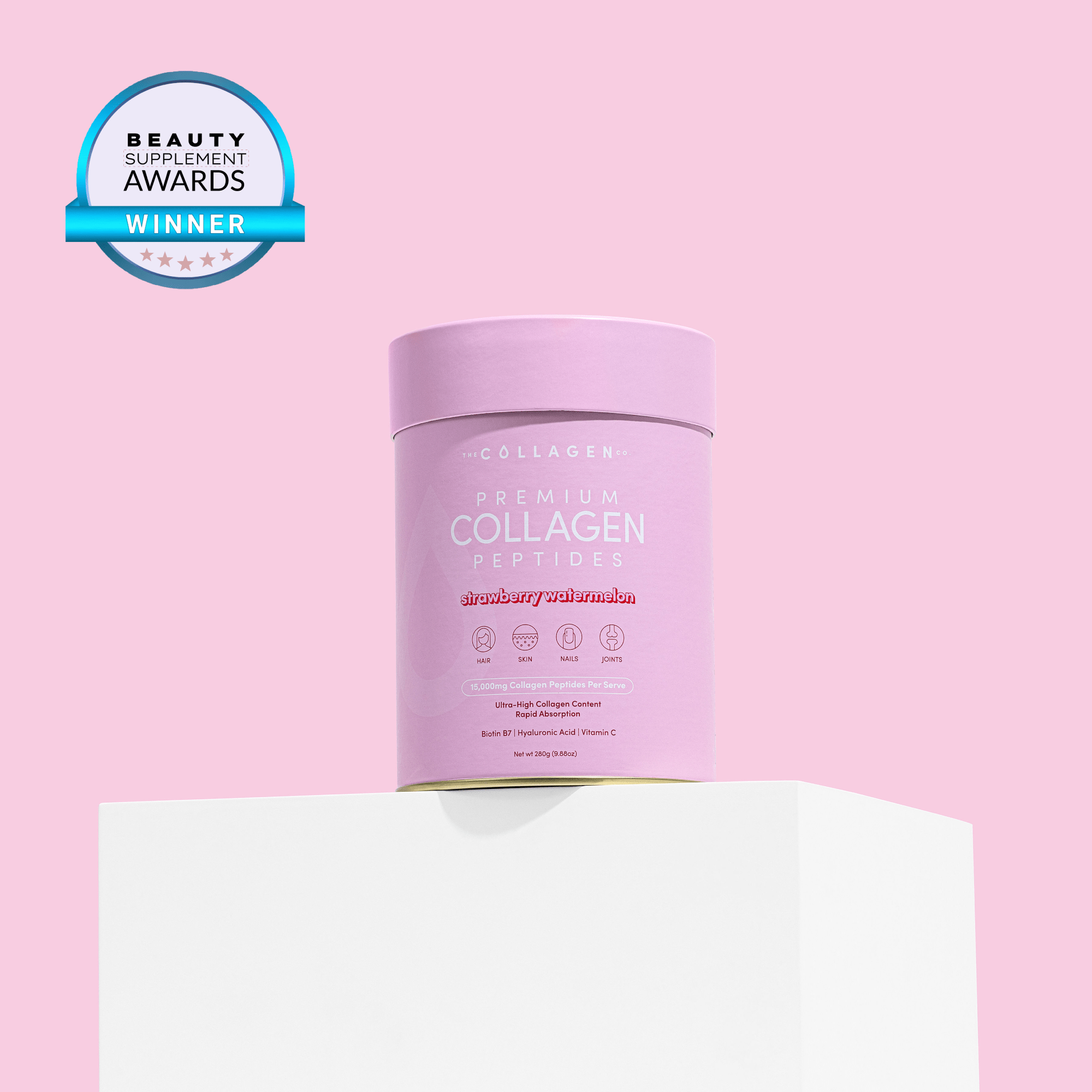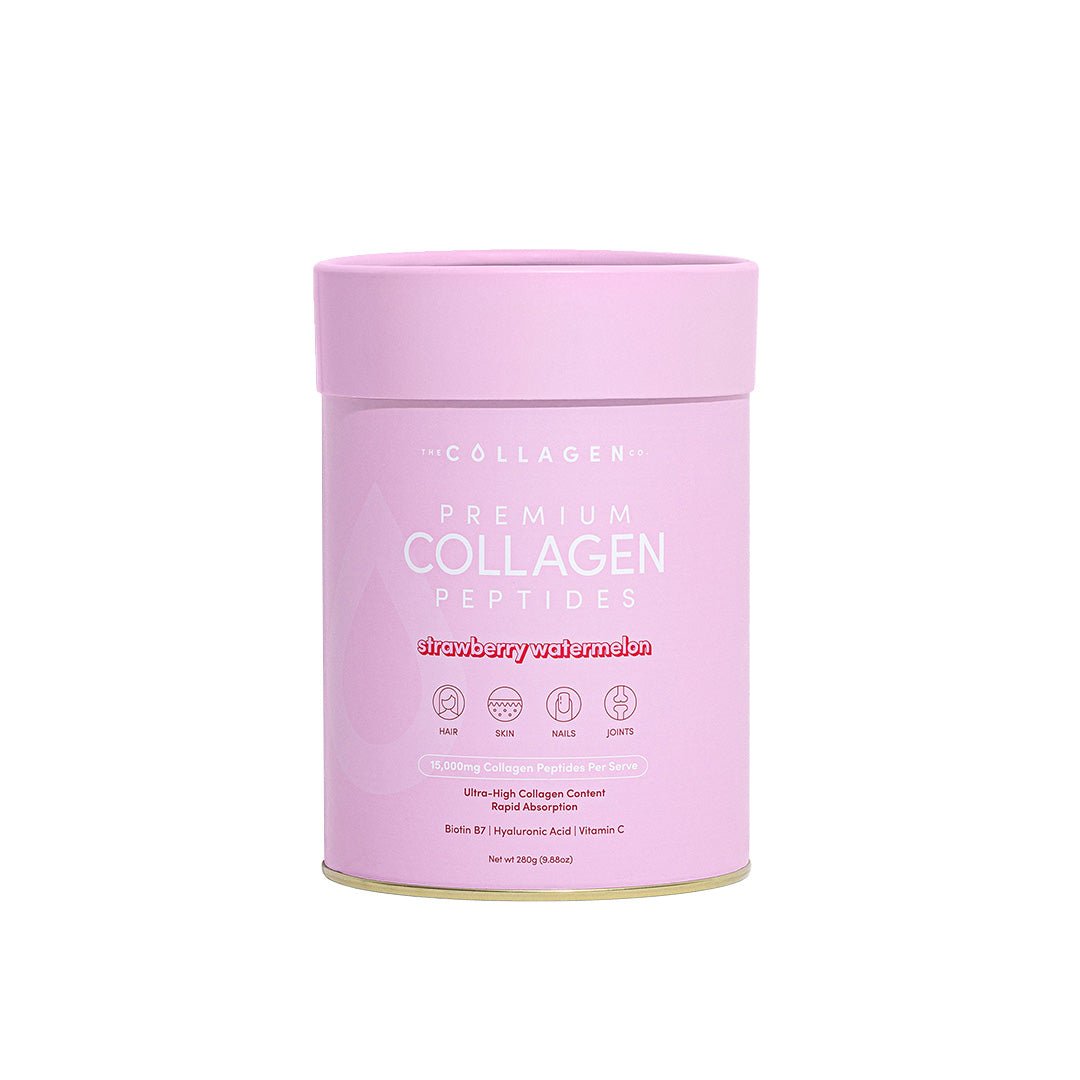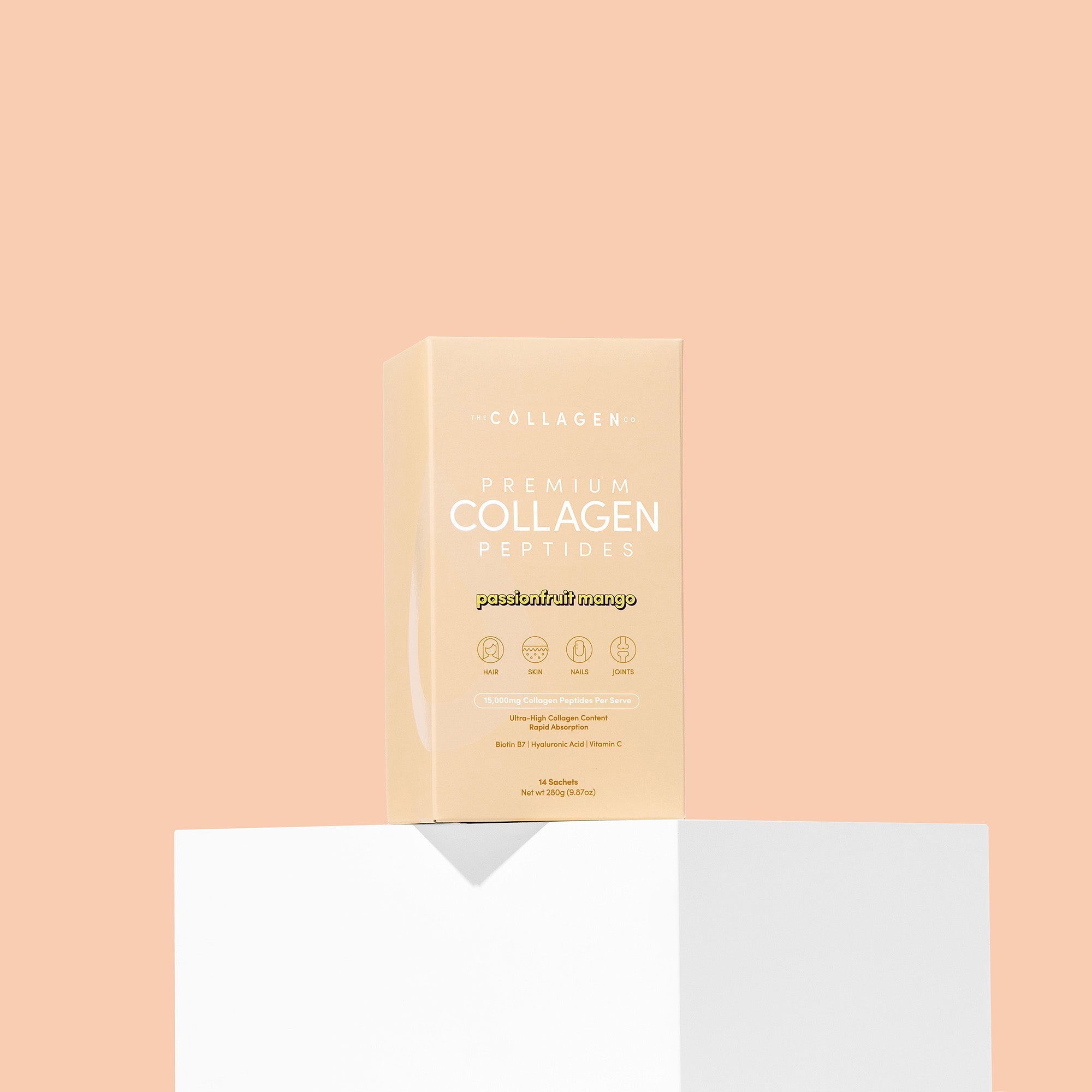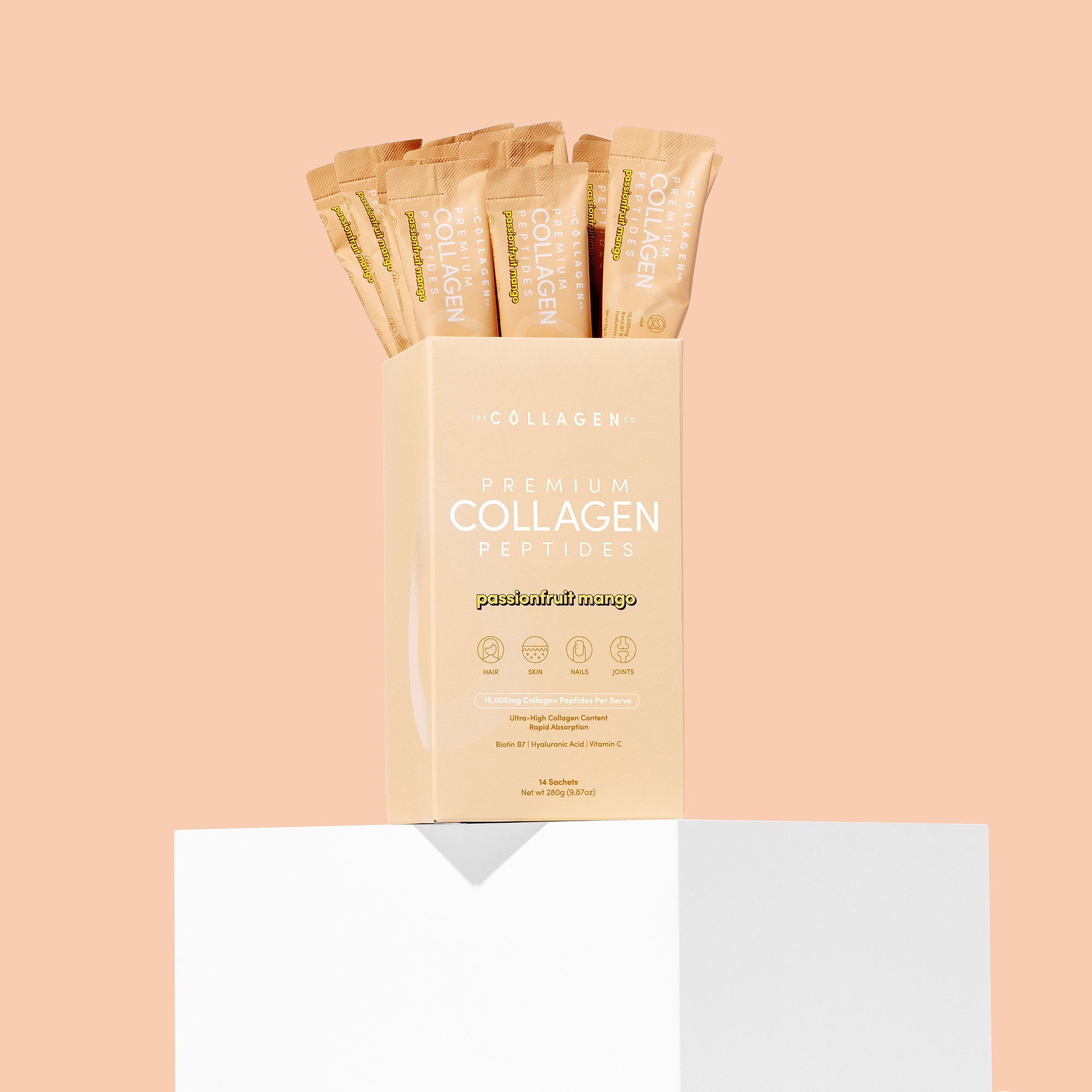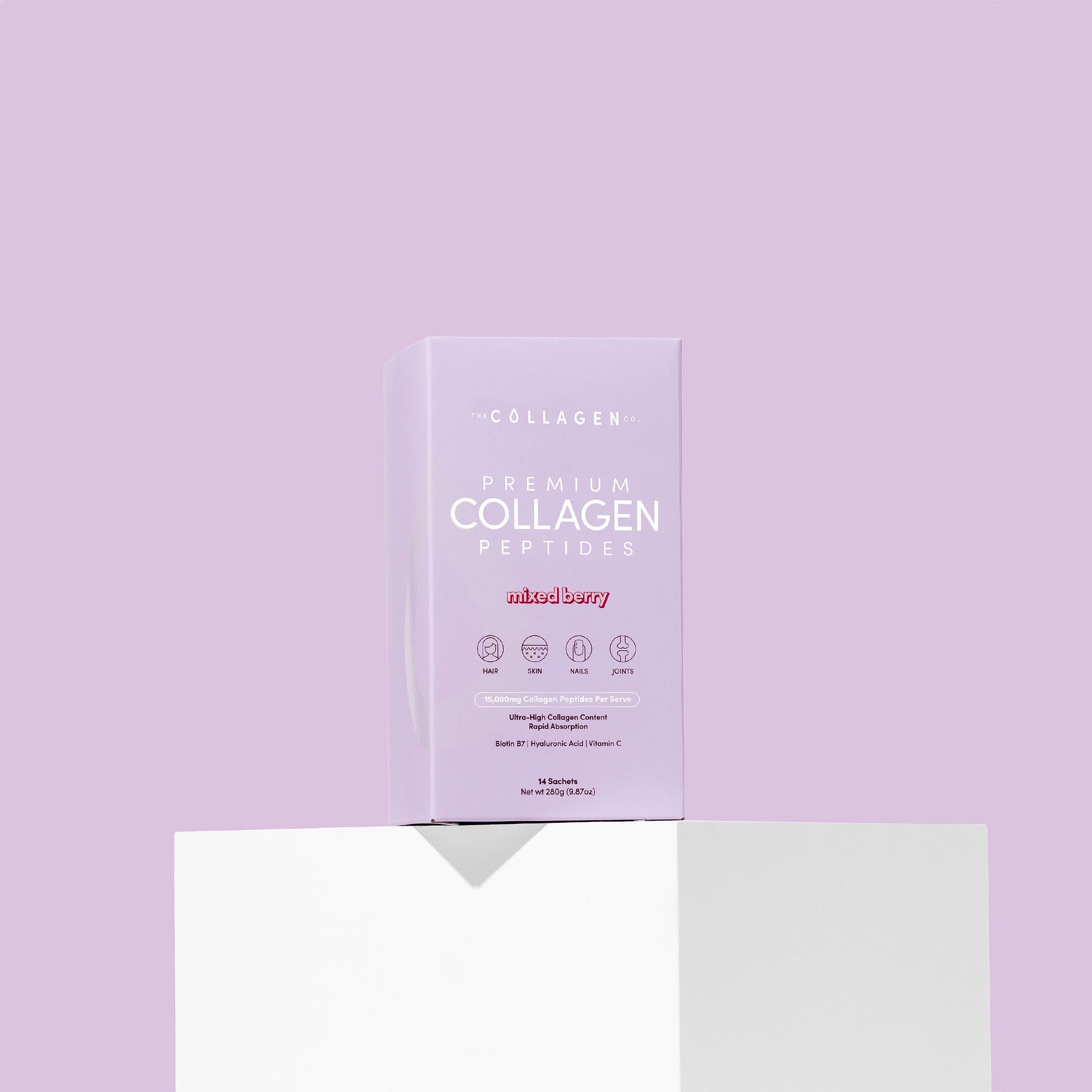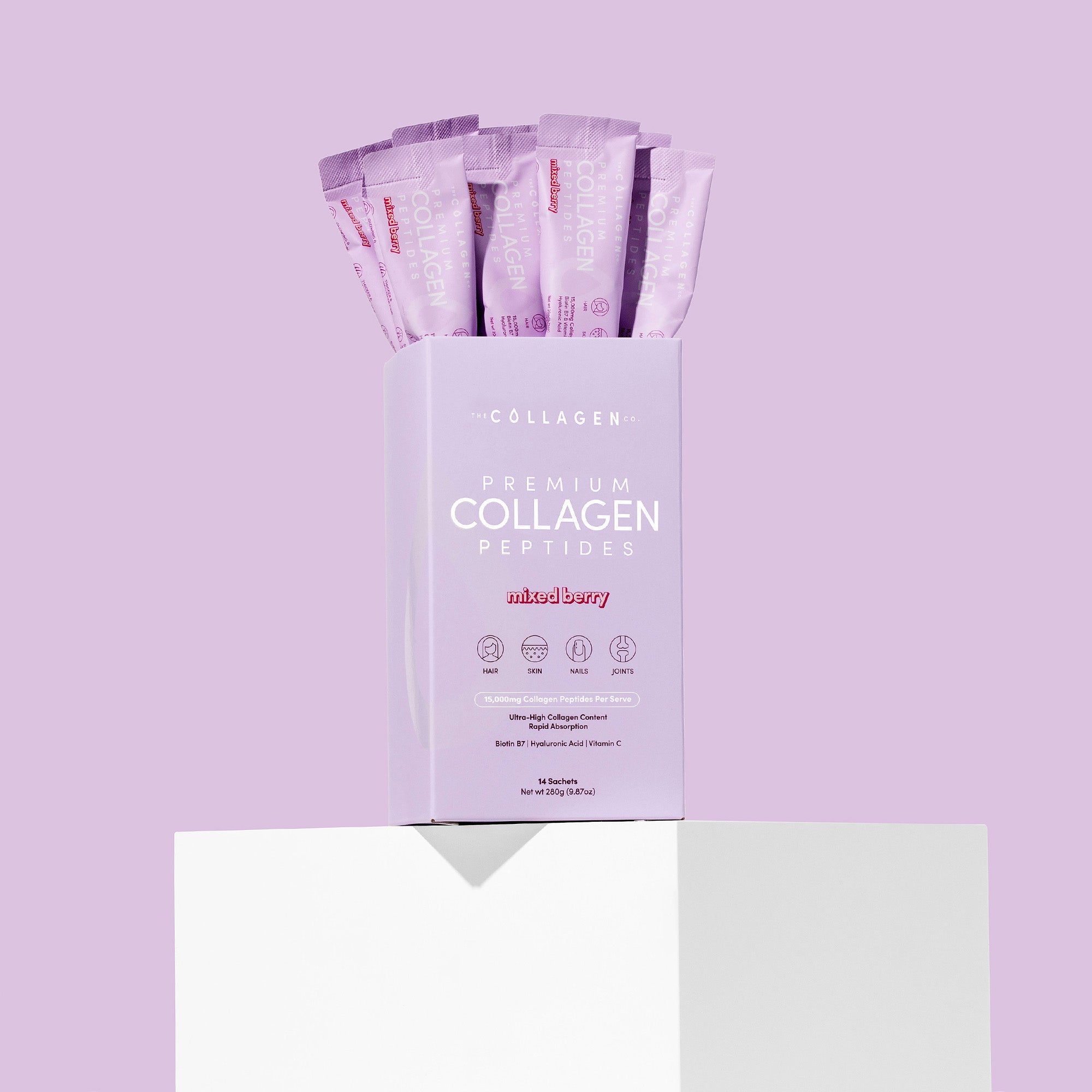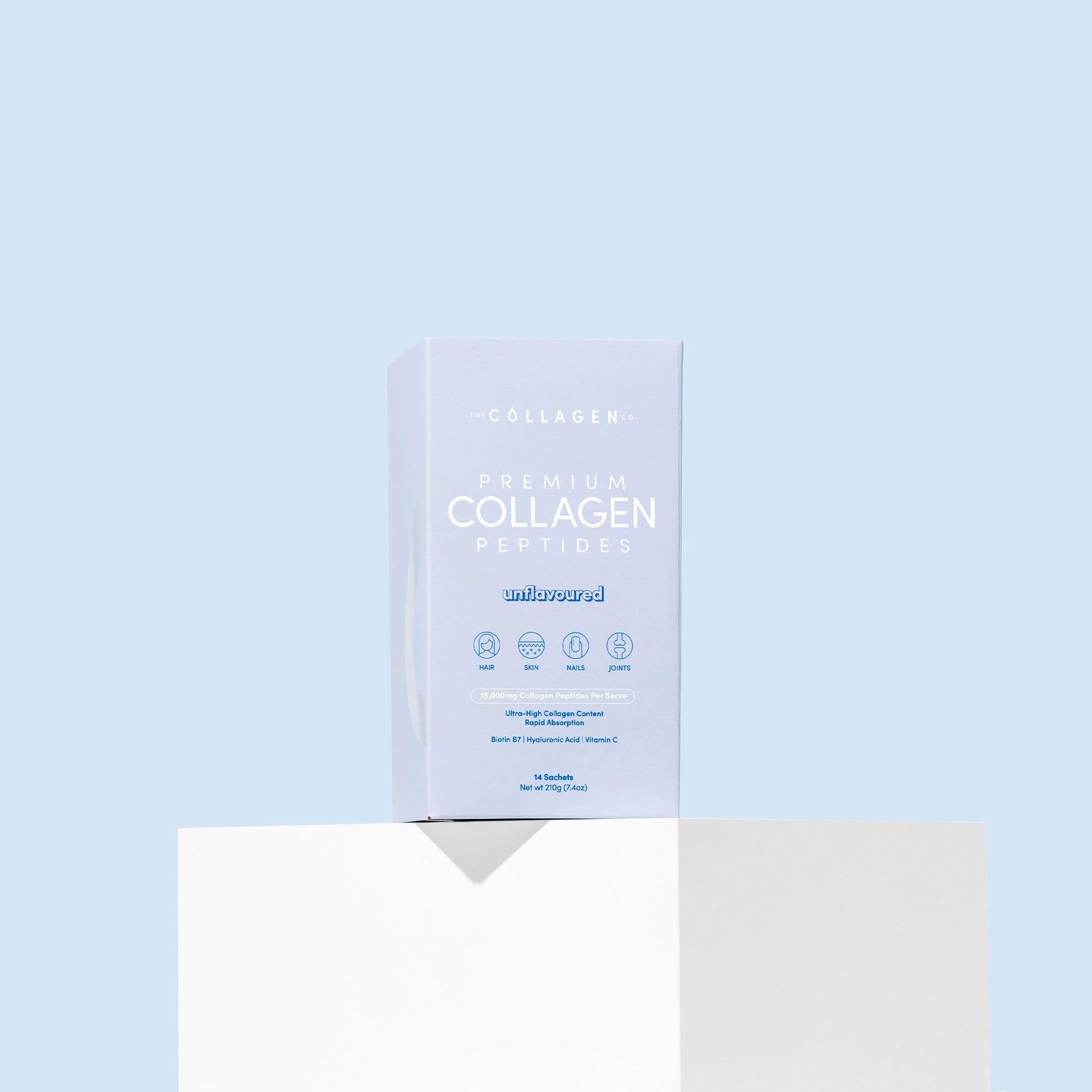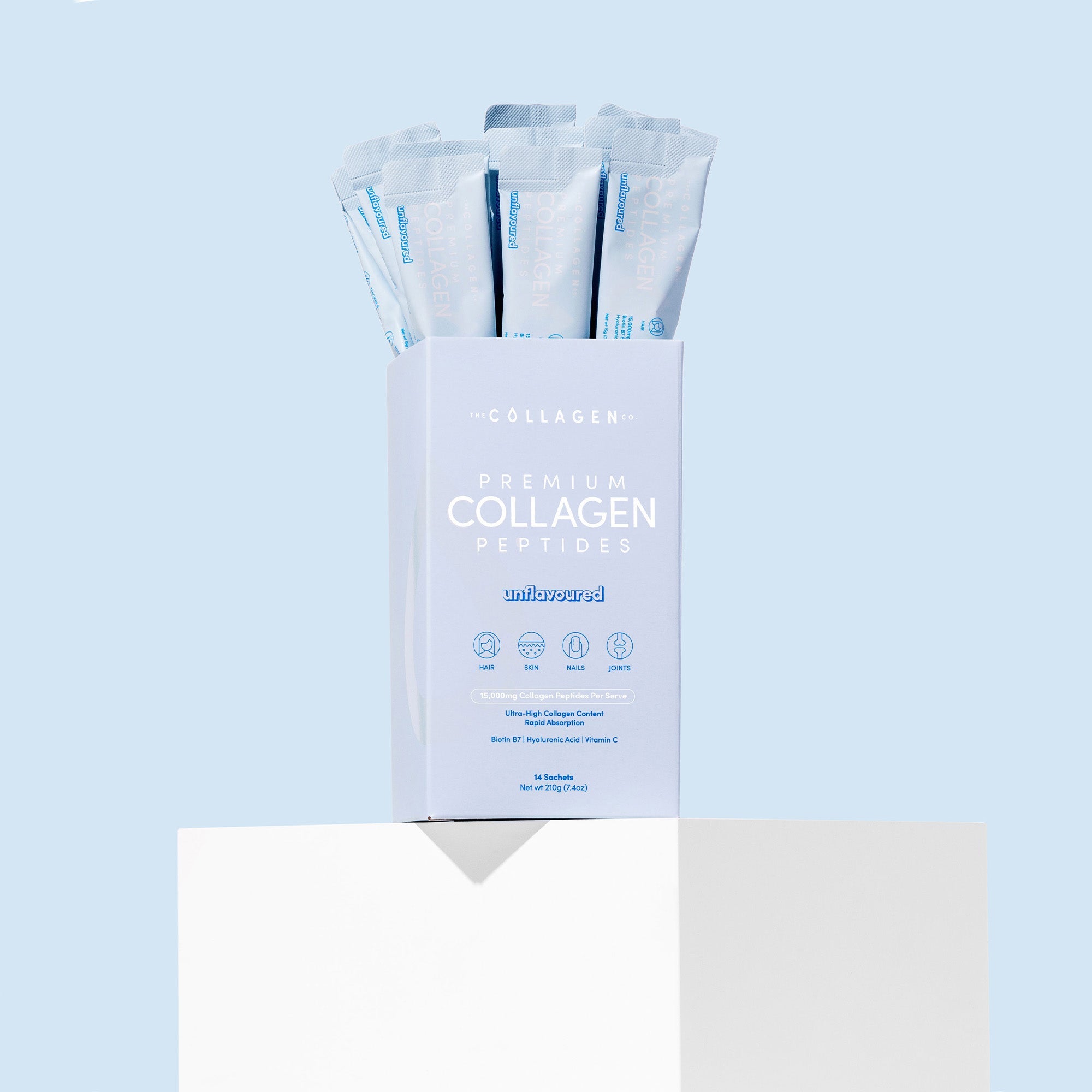What Is Bovine Collagen?
Posted 9th November 2021
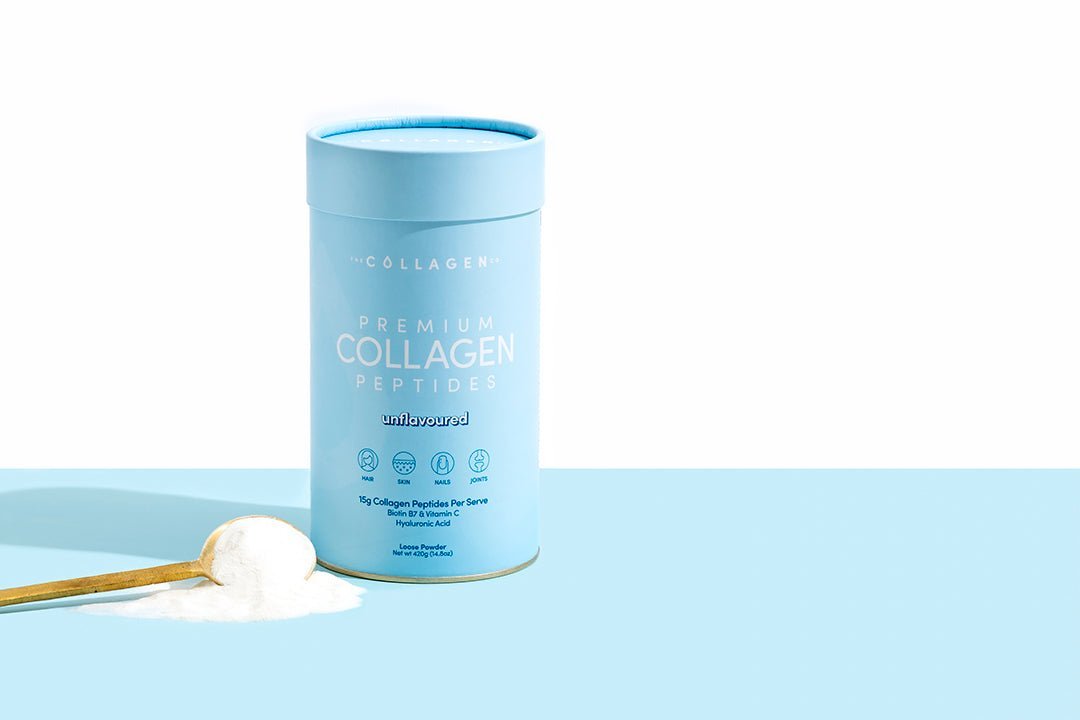
"Bovine collagen". Have you ever seen this term on the back of your collagen supplement … and wondered just what it meant? Well, wonder no more. In this article, we explore just about everything you need to know about bovine collagen – from where it comes from to how it differs from other collagens sources (e.g., "marine collagen"), and even to how long you can expect to wait before you see improvements in your skin, hair, and joints. Let's dig in.
What’s bovine collagen?
An interesting fact for you: bovine species includes yak, antelope, bison, water buffalo, and cows. But not to worry, because bovine collagen comes primarily from cows. And how do they get bovine collagen? Well, to make bovine collagen, supplement companies simply boil cow bones (or other cattle byproducts) in water. The collagen is then extracted – then dried, and powdered to form a supplement.
Is bovine collagen halal?
To understand whether bovine collagen is halal, it'd be helpful first to gain insights into what exactly makes something halal. In its most basic sense, the term "halal" is Arabic for permissible. As such, foods and/or supplements can only be considered halal on two conditions: 1) if they are free from anything prohibited explicitly by Islamic law (e.g., pork products), and 2) if they are manufactured and stored using equipment that has been cleaned according to Islamic law. With that definition in mind, you can probably already tell that not all bovine collagen products available in the market will necessarily be halal (or not be halal). It depends on the specific company's manufacturing process.
How can you tell if the bovine collagen product you have on hand is halal, though? The first step is to scan for a halal certificate. If it has one, you can be sure that it’s halal. And if it doesn’t? Surprise: that still doesn’t mean that it’s haram (i.e., “non-halal”) for sure. It just means that you’ll have to put in a little more work on your end to reach out to that company and inquire if their products are halal. But, of course, we understand just how troublesome that can be. So, this is why we’re now taking the opportunity to let you know that, at The Collagen Co, all our products are halal. Yep. All!
What’s the difference between marine and bovine collagen?
#1: Source of collagen
Other than "bovine collagen", you'd also commonly come across something called "marine collagen". But what's the difference? Well, as implied by their names, the source of collagen is different right off the bat. Instead of being derived from cows, much of the marine collagen you see comes from fish like cod or snapper – specifically the skin and scales of these fish. However, that's not where the differences end, either. It's also about the types of collagens found within each.
#2: Types of collagens (and the resulting impact on the body)
First, though, a little background on collagen: while there are 28 “types” of collagens that can be found in the human body, three types – Type I, Type II, and Type III – make up about 90% of all collagens in the body. Here’s a closer look at each type (and their roles in your body):
- Type I: Accounts for 90% of your body's collagen and is made of densely packed fibres. Type I collagen provides structure to skin, bones, tendons, fibrous cartilage, connective tissue, and teeth.
- Type II: Made of more loosely packed fibres. Type II collagen is found in elastic cartilage, which cushions your joints.
- Type III: Performs similar functions to type I collagen – which means it helps maintain the health and structure of the skin, bones, muscles, tendons, ligaments, blood vessels, and organs.
And now, back to the differences between bovine and marine collagen: while marine collagen is primarily a source of type I collagen, bovine collagen is known to contain types I and III collagen. Thus, potentially explaining why marine collagen has been shown to only increase type I collagen production in the body – while bovine collagen appears capable of increasing types I, II (note: only applicable for selected bovine collagen, like the ones at The Collagen Co), and III.
Wait. Does this mean you should always opt for bovine collagen over marine? Well, that ultimately comes down to your dietary restrictions and/or preferences. Yes, bovine collagen can increase types I, II and III collagen – but that’s not going to matter if you’re unable (or unwilling) to consume meat anyway.
How long does it take for bovine collagen to work?
Ah, the question you’ve been waiting for. Just how long does it take before you can see results? Well, as mentioned in our previous article, “How Long Do Collagen Supplements Take to Work", it depends on the specific benefit you're looking for:
- Skin: Studies have shown between 6 to 12 weeks to see improvements in skin elasticity, hydration, and density.
- Joints and tendons: Studies have shown between 12 weeks to 6 months for relief from creaky, achy joints.
- Hair and nails: Limited studies have shown roughly 6 months for enhanced nail strength and thicker, healthier-looking hair.
Balking at how long it'd take for you to see results? That's understandable; they do sound like an awfully long time. But that’s because many of these studies involve a low dosage of collagen supplementation – with the lowest coming in at 2.5 grams! This could thus be a contributing factor toward the longer time frame needed to realise collagen’s benefits.
Fortunately, our Premium Collagen Peptides deliver 15 grams of collagen per serving. And as so many of The Collagen Co’s customers have proven, this higher dosage does indeed “speed up” collagen’s effects on the body. How fast, exactly, though? Well, most of our customers have seen improvements as quickly as in 2 to 4 weeks across all aspects (e.g., skin, hair, and nails).
If you’re still not convinced … here’s something that might: our bovine collagen is sourced from grass-fed, pasture-raised cattle. Meaning? You can rest assured that all our products are free of toxins, including antibiotics and other drugs. Plus, we make sure that our grass-fed cattle are raised in a healthy, happy environment. Because you know what they say: happy cows give the highest-quality collagen. OK, well, it might be us who said it, but you know it's true! Shop now.
